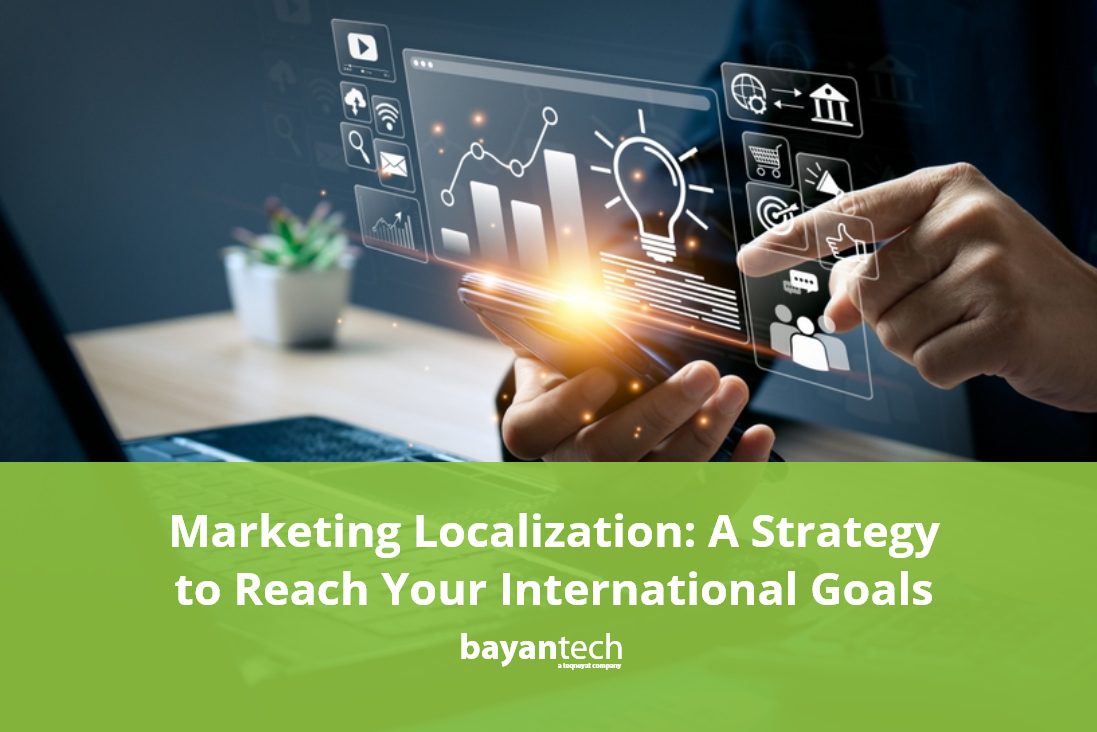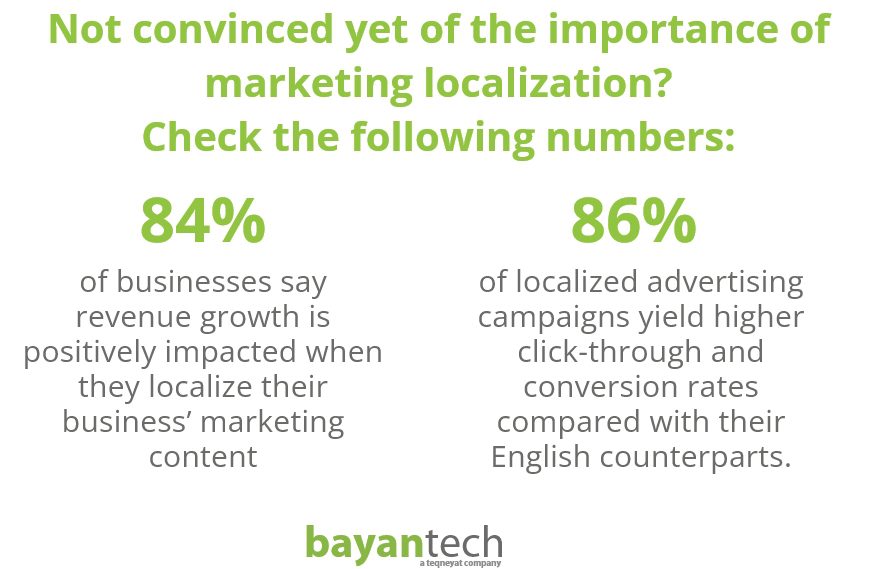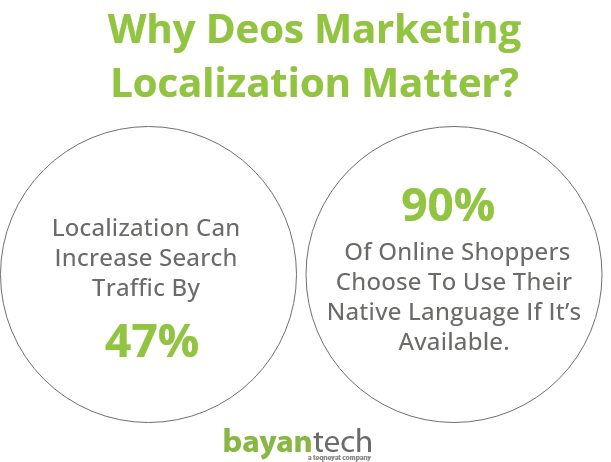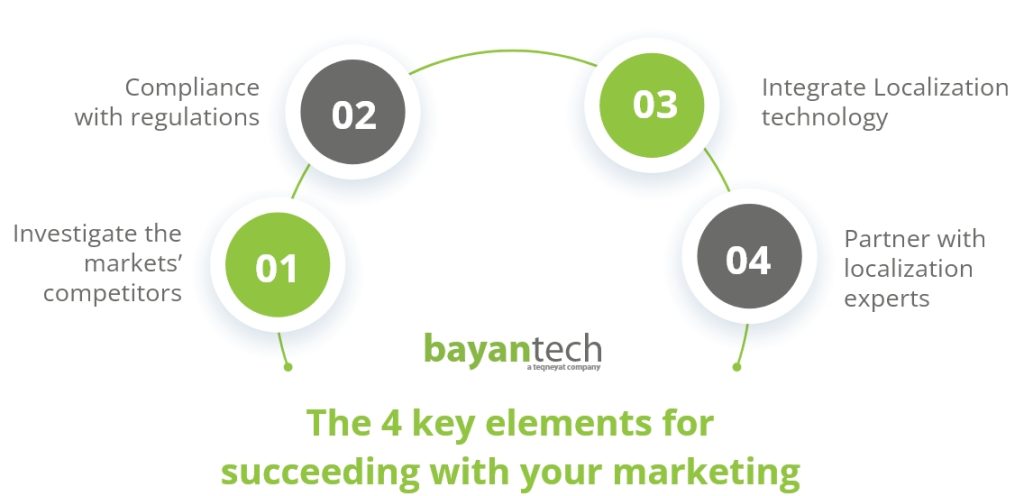While translation was once the primary tool for cross-cultural outreach, contemporary marketing demands a more nuanced approach to building authentic bonds across languages and cultures. It demands comprehensive marketing localization strategies that tailor experiences to each unique market’s needs and preferences.
We all know that effectively marketing your brand to a new audience can make all the difference when entering a new market. But while you might think your business is ready to appeal to your new target audience with an English-only marketing approach, more than often you are mistaken. One never fits all when it comes to marketing.
In this blog post, we will explore and define what marketing localization is and provide you with practical tips to consider in your marketing strategy.
What Marketing Localization Is All About
Marketing localization is the practice of adapting marketing materials and strategies to resonate with a specific local audience. It goes beyond just translating content into different languages to involve understanding and incorporating cultural nuances, preferences, and audience behaviors to create a truly relevant and engaging experience for each target market.
The main purpose of marketing localization is to:
- Increase brand awareness and engagement: With culturally relevant content that speaks the local audiences’ languages, businesses can build stronger connections, fostering trust and brand loyalty.
- Drive sales and conversion: Localized marketing campaigns that are tailored to local needs and preferences are more likely to resonate with potential customers, leading to increased sales and conversions.
Expand into new markets: Effective localization can help businesses successfully enter new markets, reach a wider global audience, and compete on a global scale.
Tips & Tricks To Strick A Chord With Your Marketing Localization Strategy
A localization strategy should always be dynamic and changeable for each market’s condition, but below are some tips that you will always have to keep in mind while crafting your marketing localization strategy.
Know Your Competitors As Well As Your Customers
Just as the saying “know your enemy” in any war, the same goes for the marketing localization strategy. Before adopting a strategy you need to examine what your competitors are offering and what they are missing to always be one step ahead.
Conduct thorough research to gain a deep understanding of your target’s market demographics. This knowledge informs every aspect of your localization strategy. What will make you different always is how you engage with your customers trying to understand their needs and fears. This can be done through surveys, focus groups, or social media listening to gain deeper insights and work on them.
Be Mindful Of Legal And Regulatory Requirements
Different countries have varying regulations regarding advertising and marketing content. Ensure that all your localized materials comply with relevant laws and regulations to avoid legal issues. In 2012 Singapore airline Tiger Airways was fined more than $100,000 for failing to adhere to Australia’s Spam Act.
You always need to keep an eye on your marketing material when expanding to different regions. What works out in the UAE will not apply to the USA. In addition to that, advertising and marketing for Muslim Arab countries will be so conservative. So be mindful of religious beliefs, traditions, and social norms and avoid using imagery or messaging that could be offensive or disrespectful to the local culture.
Don’t forget that your marketing localization strategy should always be adaptable to match your audience’s green and red flags.
Embrace Localization Technology
This market is so demanding that you might fall behind when trying to cope with the fast-paced technological advancements. To solve this and always be on the top, localization tools are the answer.
But remember they are not a replacement for humans; these are the tools that streamline the whole localization workflow, and make it more efficient and organized.
You can explore software that can help manage the localization process, streamline workflows, and ensure consistency across different markets.
Research has shown localization assisted by artificial intelligence is highly recommended. Over 65% of companies reported 3x results improvement once they began implementing AI tools to localize content for target audiences.
Search well for the best translation tools that can help you in your marketing localization strategy, or else, get the help of a professional localization provider to save you all the hassle. And this takes us to the most important tip!
Partner With Localization Experts
Partnering with localization experts is a critical step if you are seeking well-tailored localization solutions that ensure your brand and messaging are consistently delivered to international users in a culturally appropriate manner, of course without breaking the bank. Professional localization agencies:
- Have extensive teams of native, locally-based translators, localization experts, QA professionals, and more who all work collaboratively to ensure all your requirements are met.
- Are equipped with advanced translation technology infrastructure optimized for the localization process, which enables them to deliver impactful results on time and on budget.
- Have expert project managers who not only manage complex projects with ease but also ensure timely delivery and quality outcomes.
Make Your International Presence Ready Today With BayanTech
Tailoring marketing content for multilingual and culturally diverse audiences is not always an easy task. However, when executed strategically with the right partner,
bayantech is your reliable partner for top-quality marketing translation services. As an industry leader for over 20 years, we provide strategic marketing localization solutions to help your brand confidently engage international markets.
Our large global team of native translators and localization experts ensures culturally resonant translations optimized for each region. Contact us now.
8 Steps Every Medical Interpreter Takes
Looking for a medical interpreter? Discover the career path of medical interpreters and qualifications they need to acquire to take on interpreting jobs.











